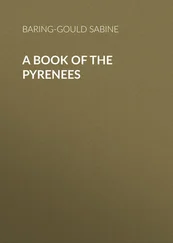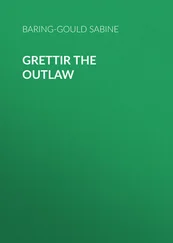Sabine Baring-Gould - The Village Pulpit, Volume II. Trinity to Advent
Здесь есть возможность читать онлайн «Sabine Baring-Gould - The Village Pulpit, Volume II. Trinity to Advent» — ознакомительный отрывок электронной книги совершенно бесплатно, а после прочтения отрывка купить полную версию. В некоторых случаях можно слушать аудио, скачать через торрент в формате fb2 и присутствует краткое содержание. Жанр: foreign_prose, foreign_religion, Философия, foreign_psychology, foreign_antique, на английском языке. Описание произведения, (предисловие) а так же отзывы посетителей доступны на портале библиотеки ЛибКат.
- Название:The Village Pulpit, Volume II. Trinity to Advent
- Автор:
- Жанр:
- Год:неизвестен
- ISBN:нет данных
- Рейтинг книги:5 / 5. Голосов: 1
-
Избранное:Добавить в избранное
- Отзывы:
-
Ваша оценка:
- 100
- 1
- 2
- 3
- 4
- 5
The Village Pulpit, Volume II. Trinity to Advent: краткое содержание, описание и аннотация
Предлагаем к чтению аннотацию, описание, краткое содержание или предисловие (зависит от того, что написал сам автор книги «The Village Pulpit, Volume II. Trinity to Advent»). Если вы не нашли необходимую информацию о книге — напишите в комментариях, мы постараемся отыскать её.
The Village Pulpit, Volume II. Trinity to Advent — читать онлайн ознакомительный отрывок
Ниже представлен текст книги, разбитый по страницам. Система сохранения места последней прочитанной страницы, позволяет с удобством читать онлайн бесплатно книгу «The Village Pulpit, Volume II. Trinity to Advent», без необходимости каждый раз заново искать на чём Вы остановились. Поставьте закладку, и сможете в любой момент перейти на страницу, на которой закончили чтение.
Интервал:
Закладка:
S. Baring-Gould
The Village Pulpit, Volume II. Trinity to Advent / A Complete Course of 66 Short Sermons, or Full Sermon Outlines for Each Sunday, and Some Chief Holy Days of the Christian Year
XXXVII
CHRISTIAN UNITY
Trinity Sunday.
S. Matt. xxviii. 19.
"In the Name of the Father, and of the Son, and of the Holy Ghost."
INTRODUCTION.—An ancient writer informs us that when the Egyptians named their Greatest God who was over all, they cried thrice, "Darkness! Darkness! Darkness!" And when we come to speak of the great mystery of the Holy Trinity, the utmost we can do is to repeat their cry, and say, "Darkness! Darkness! Darkness! In the name of the Father—Darkness, and of the Son—Darkness; and of the Holy Ghost—Darkness!" for however much the mind may strive to penetrate this mystery, it can never attain to its solution. Just as the eye, looking at the sun, sees the Overpowering light as a dark ball, being dazzled by its excessive glory, so the eye of the mind perceives only darkness, when looking into the infinite splendour of God in Three Persons.
We may, indeed, see sundry likenesses here on earth, which assist us in believing the doctrine of the Holy Trinity, but they are helps, and helps only; and not explanations. Thus, the sun may shine into a glass, and the glass reflect in clear water, and we see three suns, a sun in the heaven, a sun in the glass, and a sun in the water, which proceeds from both;—and this assists us to understand how the Son of God is of the Father, and the Holy Ghost is of the Father, and of the Son, and how that each is God, and yet that there are not three Gods, but one God. But, after all, the doctrine of the Holy Trinity is a matter of Faith, and not of Reason. We must believe, though we cannot understand.
SUBJECT.—In this Holy Trinity of Persons there is perfect unity existing, an unity of substance, an unity of Godhead, an unity of perfection, an unity of love.
And on earth, among men, there should be unity. "Be ye perfect," said our Lord, "even as your Father which is in Heaven is perfect." The Father is love, the Son is love, and the Holy Ghost is the love of the Father and of the Son, and this love requires the same of us—even love, or unity.
This is what God wills on earth, our living unity, even as it exists in
Heaven between the Three Persons of the glorious Trinity.
But there are three great hindrances to Christian Unity.
I. Selfishness . Each man seeks his own interest, not the general interest. Let his own selfish interests be touched, and all concord is at an end. Look at two little dogs playing together, they put their paws on each other's shoulders, and dance round each other, and roll each other over, and are full of affectionate play. Throw them a bone, and it is a true bone of contention at once. All their affection is dead, and they are fighting each other for the bone. It is the same with men, they are perfectly friendly with each other so long as no little bone comes in the way—some little money matter—and then there is no end to the snarling and snapping and growling. How often it is that the dearest friends fall out about money! This has been so often noticed that it has become a common saying, "Have no money dealings with your friend." Even near relations become bitter, and are estranged, over some provision in a will. All this arises from self-seeking. Each cares for himself, and not for others.
Now look at the Holy Trinity. The Three Persons share in equal Power, Majesty, and Eternity. The Father commits all power unto the Son, the Son gives all honour to the Father, the Son gives over to the Holy Ghost the government of His Church. The Father shares with the Son and the Holy Ghost the Divine nature, wisdom, and glory. All three are equally eternal, equally almighty, equally perfect.
II. Pride . Each man seeks to place himself before another. 'I am as good as another, or I am above so-and-so,' is a common thought. No man is content with what he is, he desires to thrust himself ahead of another. The whole of society is like a cabbage-stalk covered with caterpillars, and none is satisfied till it has crawled to the top. The caterpillar at the bottom bites the one above him, gets over his back, and then exults, 'There is a caterpillar nearer the bottom of the cabbage-stalk than I,' and so all the way up the stalk, those below scrambling over those above, and they at the top—at the proud elevation and unique honour of being at the head of a cabbage-stalk—tumble off, and are buried in the soil.
Was there any such pride of place in the angel host? Yes—once. The Devil wanted to be at the top, and he fell. The other angels are content where they are, and they remain angels. If they began pushing ahead of each other, cherubim wanting to be above seraphim, and angels envious of archangels, what a falling there would be from heaven! Falling stars indeed! All turning into devils. Look at the Blessed Trinity. God the Son says, "My Father is greater than I." He places Himself in the lowest rank. He calls Himself "The Son of Man"; there is no boasting, "I am the Son of God."
III. Obstinacy . That is the third source of discord. Each man follows his own will, his dogged, headlong will, regardless of the wishes and advice of others.
In the Book of Judges we read that Samson caught three hundred foxes and tied them together by their tails, and put burning brands between them, where their tails were tied. What was the consequence? The wretched creatures dashed in opposite directions, each wanted to get away from the brand that scorched his tail, and so each wanted to go exactly in a different direction from the fox to which he was tied, and so the whole lot went dashing in a mad, disorderly manner among the standing corn, and destroyed a whole harvest.
That is something like a great number of people I know. They will tear off in their own direction, and drag others after them who wish to go in another direction, and the fire of discord is between them.
Look at the Blessed Trinity. Christ said, "I came not to do mine own will, but the will of Him that sent me."
"Let us make man," was said at the Creation. God the Father did not say "I will make man," nor God the Son "I will make man in My image," nor God the Holy Ghost "I will make man, and breathe My spirit into him," but all united in one work, and that work was very good.
CONCLUSION.—When Julian the Apostate was Emperor, three Christian soldiers were brought before him. Their names were Emmanuel, Sabael, and Ismael. He ordered them to be examined apart, lest they should encourage one another in their faith and endurance under torture. Emmanuel, seeing his object, said, "Tyrant! we Three are one in one Trinity."
Now, listen to our Lord's prayer, "I pray not for these alone, but for those also which shall believe on Me through their word, that they all may be one; as Thou, Father, art in me, and I in Thee."
XXXVIII
GREAT SURPRISES
1st Sunday after Trinity.
S. Luke xvi. 23.
"In hell he lift up his eyes, being in torments."
INTRODUCTION.—What a great surprise for Dives! So utterly unawaited! Dives, who had lived so comfortably, clothed in purple and fine linen, and had had such a good coat, and such excellent dinners, and such a cellar of wine, and such good friends at his dinners, goes to sleep one night after a banquet, and wakes up, and lo!—he is in hell. Surprise number one.
He feels the flames, he perceives himself surrounded by demons, his tongue is burning with thirst, and he lifts up his eyes and sees!—surprise number two!—Lazarus, the poor dirty wretch who had lain full of sores at his door. He did not know that the fellow was dead. And—surprise number three!—this wretched fellow is in Paradise.
Читать дальшеИнтервал:
Закладка:
Похожие книги на «The Village Pulpit, Volume II. Trinity to Advent»
Представляем Вашему вниманию похожие книги на «The Village Pulpit, Volume II. Trinity to Advent» списком для выбора. Мы отобрали схожую по названию и смыслу литературу в надежде предоставить читателям больше вариантов отыскать новые, интересные, ещё непрочитанные произведения.
Обсуждение, отзывы о книге «The Village Pulpit, Volume II. Trinity to Advent» и просто собственные мнения читателей. Оставьте ваши комментарии, напишите, что Вы думаете о произведении, его смысле или главных героях. Укажите что конкретно понравилось, а что нет, и почему Вы так считаете.












